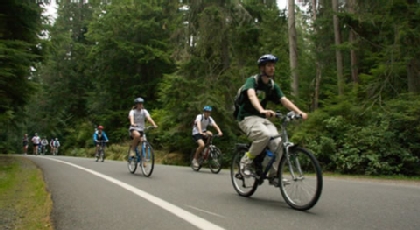Page 112 • (1,287 results in 0.02 seconds)
-

Lutheran University’s Doctor of Nursing PracticePacific Lutheran University’s Doctor of Nursing Practice prepares students to develop and evaluate quality care within a health system, collaborate with interprofessional teams to improve health outcomes, and be leaders in the nursing profession. Our DNP program prepares nurses at the highest level of proficiency as they learn to translate science into clinical practice. Students develop the skills to lead collaboratively, integrate research into care
-

logistics and administrative support. “Joining the Innovation Studies program has given me a keen insight into the different approaches I can apply to my work in the military and any marketing project I might tackle in the future. I have a brand new perspective on problem solving, and enjoyed being in classes that challenged my creativity.” Anastasia Bidne Anastasia Bidne double majored in Computer Science and French, with a supporting minor in Innovation Studies. “The Innovation program gave me tools
-
September 21, 2007 New device will probe the world of the atom Four professors over at Rieke are still pinching themselves. After applying for a National Science Foundation grant in January, on a hope and a prayer really, the chemistry faculty found out last year that they had been awarded a grant totaling $743,000 to purchase a powerful nuclear magnetic resonance spectrometer. “We were floored when we learned we had received it,” Fryhle said. “We didn’t expect to get it the very first time (we
-
recycle until he came to PLU, but now he’s passionate about protecting the environment and sharing his knowledge with others. The geosciences and chemistry major plans to teach high school science. Under the guidance of Claire Todd, visiting assistant professor of geosciences and environmental studies, those in the program have spent a large portion of J-Term reviewing the evidence for recent climate change. They have been reviewing data collected by the Intergovernmental Panel on Climate Change (IPCC
-
February 21, 2008 Dealing in historical coins is rare gift Todd Imhof ’86 wasn’t planning a career in rare coin dealing when he left PLU with a degree in political science. In fact, he was leaving for New York to work in the banking business at Chase. Then a friend from high school pulled him aside and told him about a business idea to sell rare coins. Imhof jumped in, begging off Wall Street and opening Hertzberg Rare Coins in Tacoma. “I found myself intrigued by both the coins and the
-
. Saturday, Oct. 4, at the Museum of Science and Industry in Seattle, MediaLab will premiere the documentary “Illicit Exchanges: Canada, the U.S., and Crime.” The ambitious hour-long film – MediaLab’s second in as many years – looks at how drugs and weapons affect the citizens of the two nations. “For us, this is a film about community as much as it is about the drug trade,” said Julie Olds ’09, the lead researcher on the project. “ We want to ask ‘how responsible are we?’” The project had its genesis
-
December 1, 2008 Students talk trash in recycling class It was all trash talk last month in Claire Todd’s natural resources class. In two rounds of classes last month, Todd, a visiting assistant geosciences professor, had her students sort through a mound of trash laid out on the table in the Rieke Science Center. Generally, the pile represented about six hours of trash that had been collected at the center that day. In this case, Nov. 17 and 19.The students’ mission: sort the trash, talk about
-
degree of hypothermia, but I loved every moment of that historic day. Morgan Root is a senior at PLU. She is a communication major with an emphasis in journalism and a minor in political science. The photos were also provided by Root. Read Previous Explore! offers first year students a chance to bond. Read Next Diplomat explores Jewish-German relations COMMENTS*Note: All comments are moderated If the comments don't appear for you, you might have ad blocker enabled or are currently browsing in a
-
homes where the next meal and the next paycheck is always an uncertainty. Each morning, Pfaff, 22, gets up at 6 am and is in the classroom by 7 am. He lets his students eat in class to make sure they have breakfast and then they get to work. Pfaff teaches everything, from math, to science to English. After school, he works on papers and talks to students. He usually leaves about 4:30 pm. Then repeats this the next day, and the next. The local newspaper interviewed Pfaff just before the first day of
-

use public transportation). There are a lot of great benefits.” Many departments and organizations around campus were involved in planning for OTR. Faculty members were given the opportunity to provide input into possible trips that they would find interesting. Deane said that the chocolate factory tour scheduled this year was a new idea presented by a geo science professor. Other department contributions included the Volunteer Center, Campus Ministry and faculty members from all over campus
Do you have any feedback for us? If so, feel free to use our Feedback Form.


